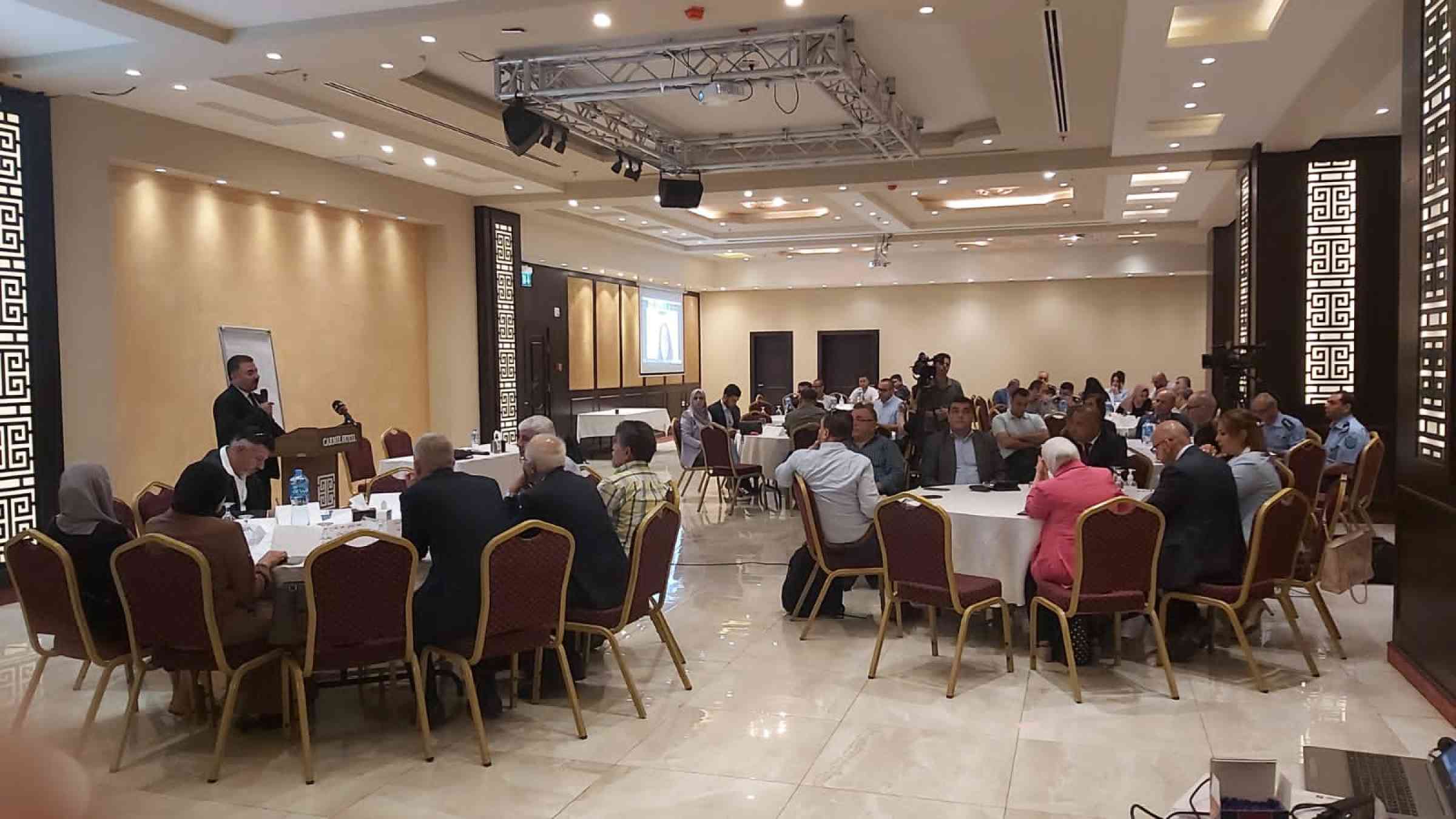National Consultation Workshop: Midterm Review of the Implementation of the Sendai Framework 2015-2030 for the Arab Region – Palestine

Ramallah, Palestine, 23-24 August 2022 – The United Nations Office for Disaster Risk Reduction, Regional Office for Arab States, in collaboration with the National Center for Disaster Risk Management, organized a National Consultation Workshop on the Midterm Review of the Implementation of the Sendai Framework 2015-2030 for the Arab Region in Ramallah, Palestine.
The consultation brought more than 54 participants from the government, governmental and non-governmental organizations, DRR stakeholders, UN agencies, and international organizations in Palestine to collect information on the implementation of the Sendai Global Framework for Disaster Risk Reduction and to put forward recommended measures to accelerate progress towards achieving its objectives by 2030.
“The Sendai Framework focuses on man-made risks and disasters, and this is essential for Palestine context. The organization of this workshop is crucial, and we thank UNDRR for their support and continuous efforts to enhance disaster risk reduction in Palestine,” said Dr. Stephen Salameh, Representative of the Palestinian Prime Minister Mohammad Shtayyeh in his opening remarks and presented the steps that Palestine took to enhance disaster risk reduction in terms of establishing the National Center for Disaster Risk Management, forming the National Team for Disaster Risk Management, establishing the National Technical Team, preparing a draft national law for disaster risk management and an organizational structure to align with the law. “The State of Palestine affirms its commitments to disaster risk management and reduction, as well as to developing its capabilities in this field,” he added.
“Palestine will benefit from the midterm evaluation of the Sendai Framework for Disaster Risk Reduction at several levels and in many sectors,” said Mr. Hassan Abu Al-Aila, Head of the National Center for Disaster Risk Management in Palestine.
“Palestinian people and government have been facing multiple challenges in relation to governance, security, and stability,” added Sujit Mohanty, Chief of the UNDRR Regional Office for Arab State. “The human-induced hazards are hindering sustainable development.”
Mohanty conveyed UNDRR’s commitment to supporting the implementation, follow-up, and review of disaster risk reduction progress at the national and local levels in Palestine, in continuous collaboration and support of UNDRR partners.
This national systematic consultation in Palestine, between the various official actors and stakeholders involved in disaster risk reduction, on the midterm review of the Sendai Framework put forward recommended measures to accelerate progress towards achieving them by 2030 and sought to gain new perspectives and insights. The workshop was attended by several government representatives including, Dr. Nasreen Al-Tamimi, Head of the Environment Quality Authority, Muayad Shaban, Head of the Wall and Settlement Resistance Commission, Dr. Laila Ghannam, Governor of Ramallah and Al-Bireh, Major General Al-Abd Ibrahim, Director General of Palestinian Civil Defense, and Mohammed Al-Ramahi, Director General of the Local Authorities Development and Lending Fund.
The consultation focused on the retrospective review of what has been accomplished during 2015-2022 and the prospective review of 2023-2030, seeking to gain new perspectives and insights through working group discussions and public discussions. The workshop came to facilitate stocktaking on progress, identifying changes in context, and developing recommendations for prioritized, accelerated, and integrated cooperation and action in Palestine.
The consultation results will support the preparation of the voluntary national report for Palestine by its Government and the regional report for the midterm review of the Sendai Framework in the Arab Region prepared by the UNDRR.